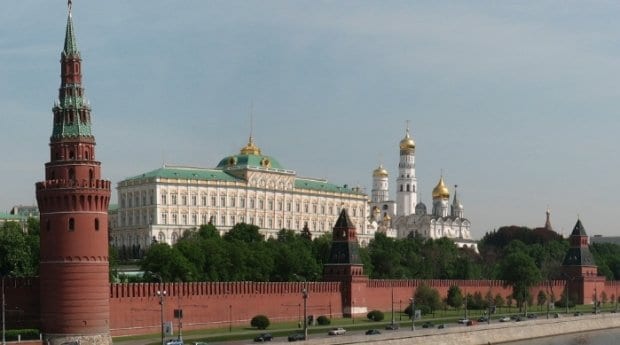Representatives from conservative, US-based organizations like the World Congress of Families were among 1,500 people from 45 countries who reportedly attended a recent conference in Moscow entitled “Large Families: The Future of Humanity” held in the Kremlin and at the Cathedral of Christ the Saviour.
“[That] tells you how well it was received by the Russian leadership; those are very, very important places,” says Tanya Cooper, a Russian researcher with the Europe and Central Asia division at Human Rights Watch (HRW).
Among the conference’s high-profile attendees were Yelena Mizulina and Olga Batalina, the reported authors of Russia’s “gay propaganda” law; Patriarch Kirill, the head of the Russian Orthodox Church; Pavel Astakhov, the children’s rights commissioner; and Vladimir Yakunin, head of state-owned Russian Railways, and his wife.
Cooper says their attendance, in addition to a message of welcome from Russian president Vladimir Putin, signals that the already dangerous environment that LGBT people navigate in the country will only get worse.
The Sept 10 – 11 conference issued “an urgent appeal to the nations of the world” to develop and implement “legislative bans on all types propaganda concerning homosexual relationships in the environment of children and juveniles,” and to “oppose the cynical utilization of women as surrogate mothers in the interests of same-gender liaisons and alliances.”
It also called for “scientific research to study the conditions and prospects of developing a Natural Family, as well as studying the negative social and psychological effects of raising children in same-gender couples.”
Marriage between men and women is key to “the preservation of mankind,” the appeal states, adding that all other sexual relationships that exclude the birth of children are meaningless.
“No political or economic interests can serve as a pretext for replacing the true and time-tested concept of ‘family’ by any kind of surrogate,” the appeal continues.
By welcoming the conference, the Russian government is inflaming homophobic sentiment among Russian people and essentially saying that LGBT people are second-class citizens and “not natural to Russian culture and society,” Cooper says.
“I follow the cases of violence and harassment of LGBT people, and what I’ve noticed is that the violence is not only on the rise — it definitely has escalated since the passage of the propaganda law — but also the brutality of the violence is more intense.”
Cooper says she’s been in touch with several activists who have reported incidents of homophobic violence to her.
However, she says, she is not aware of anyone who was prosecuted for hate crimes against LGBT people. While there are people who have been prosecuted for crimes committed against gay people, they are not framed as offenses motivated by homophobia, she says.


 Why you can trust Xtra
Why you can trust Xtra


